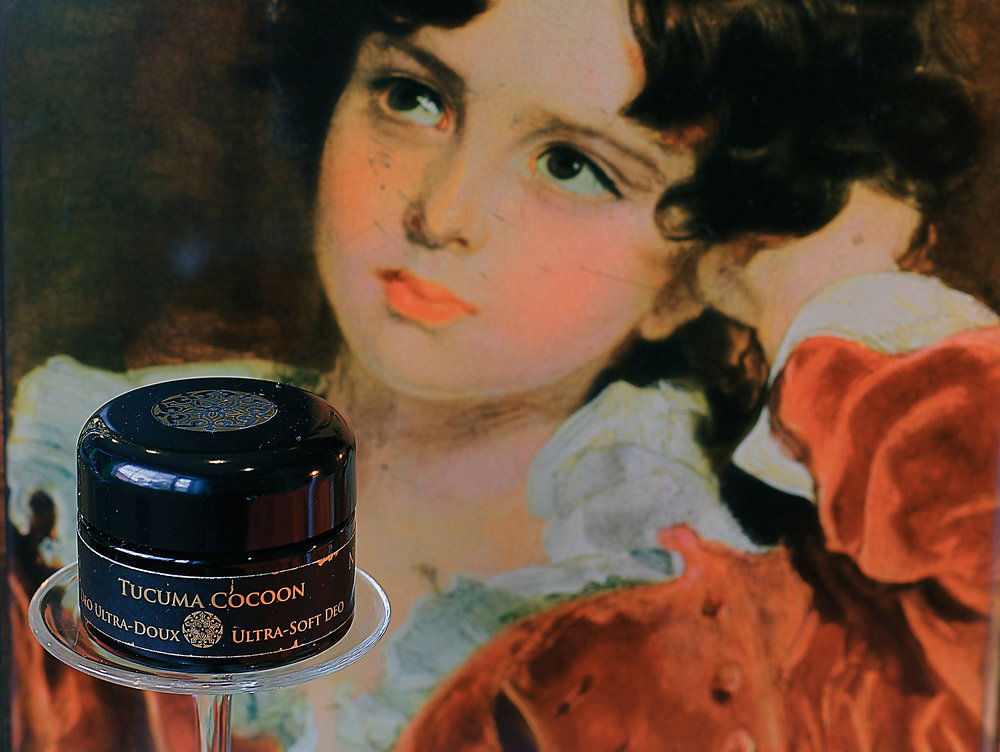NadiaZ Natural Cosmetics featured in Savant Magazine
/blog/2017/2/11/nadiazpremiumrangeswisscosmetics
NadiaZ: Premium Range Swiss Cosmetics Celebrating the Scarcity of Indigenous Plants
Bienvenue to the world of NadiaZ indigenous plant based cosmetics: Swiss scientist Nadia Zuodar’s eponymous label of premium range cosmetics NadiaZ celebrates the power of active compounds of rare indigenous plants. Inspired by her agronomist Italian father, Nadia Zuodar took a liking in precious oriental scents and developed her own more natural, active formulas that helped to alleviate her skin allergies, which she suffered from early childhood. Although the basis of Nadia’s research was a personal ground, for a decade, the founder was dedicated to humanitarian missions in Africa and international development across the globe that also played a big part of forming the mythical and mystical range of cosmetics sourced from rare plants. NadiaZ in 2017 is a premium range brand, a true innovator in the industry introducing all-natural, velvety scents and antiallergic, non-irritable compounds in skincare to celebrate the scarcity of indigenous plants and fight against their extinction. We talked the benefits, use and ethics of natural cosmetics with the knowledgeable founder.

NadiaZ’s Tucuma Cocoon Ultra-Soft Deo.
What informed the creation of your own ethical luxury cosmetics brand? What was your philosophy that created basis for your brand from the start?
As you could further read on my website, I was allergic to almost everything on the market and have been formulating products since childhood. Then I added the scientific and ethnological knowledge to be able to explore on plants, traditional medicinal use, neurobiology, physics and chemistry and almost 2 decades field work in various countries, at least one decade building my supply network of rare indigenous plants. So it was a necessity first, then people asked me to make it available to the public and here I am!
What are the key compounds that make your products so unique and sought-after?
I take special care featuring vegetable oils that have seen less interest so far, as compared to essential oils promoted by aromatherapy. Vegetable oils, such as oils pressed from nuts and seeds, like Baobab, Ucuuba and Ximenia, bear unique compounds, some of them yet to be fully studied, besides showing specific mechanical properties that are important for skin protection.
The list would go on forever, so here is a description on the plants I use and the very special concept here https://nadiaz.ch/ingredients-library/
What are the particular benefits of the natural hair therapy elixir (Rito Copaiba Hair Serum) and deodorant (Tucuma Cocoon Ultra-Soft Deo) we are testing? What is the expected treatment and who could benefit from using these products?
The Copaiba Ritual Hair Serum is designed to create a long lasting protective and natural film on the hair, particularly due to the active Copaiba Resin and thus prevents hair from splitting, improves shine and resistance of the hair fibers. Most hair products contain silicons, which simply sit at the surface and get washed off. Besides, silicons result in micro-pollutants in the environment.
Tucuma Cocoon is the first deo that is totally safe to use, without aluminium salts or added aggressive chemicals. It is a new way to use deo, where one would carry it along and re-apply it, rather than expect 24h duration. Its formula was inspired by traditional rituals, such as henna application, as well as by my research on Amazonian plants.
All my products are for people who suffer from allergies, dry and sensitive skin and/or hair, or simply want healthy products. Unfortunately, there are very strong regulations in regards to cosmetics that prevent us to speak about their therapeutic and health benefits, or call it phytotherapy. Most of the plants I use have very special constituents unique to them. Besides, the manufacturing principles I apply and patient work (cold process, hand-made, concentrated products) ensure a superior quality.
“My hopes may be idealistic, but we just need to get more people shift from petrochemical formulas to natural ones and that would be a good minimum step.”
How is the holistic approach represented when it comes to your range of personal care products, including perfumes?
Holistic can mean a lot of things. In the case of my brand, holisticness covers — ethical, ecological and health. It means that for each ingredient sourced, each product made and each manufacturing or business approach taken, those are integrated and held at the highest standard. This is why I have developed a model for social business (read more: https://nadiaz.ch/business-strategy-framework/), as well as the other links below the mission. In terms of health, it also means to pay attention to and take care of our number one organ, which is our skin, as well as the health of our respiratory system, which are all affected by cosmetics. This is why I make trustable products to be used all life long and do not compromise with fashionable features, such as doing scented cosmetics, or making not concentrated formulas that would mean using more harmful preservatives and texturers.
What’s the best way for us customers to educate ourselves about the harmful ingredients found in beauty products and learn about the benefits of natural compounds?
As I can’t list all, I think the most important is to read the ingredients of anything one buys. Then to follow the advice on very knowledgeable websites, books and eco-labels that all try to educate the public. Rita Stiens did a good book, although in French, and here is a reference website http://laveritesurlescosmetiques.com/
There is not one reference, but there are common points to many sites, books and labels. Unfortunately, when it comes to the label, there is not one reference, because some may put more accent on ethical trade, some more on ecology, others on health, whereas it is virtually impossible to have one covering it all, so people have to apply a critical judgement and learn to analyse basically their cosmetics ingredients rather than simply follow a label.
However, what ingredients should we definitely avoid in our personal care products?
Most importantly, people should keep away from petrochemical based products and highly scented cosmetics (VOC). Then they should favour products that are oil-based and do not need preservatives, such as water-based products. Avoid silicone formulas, nanomolecules, not only for the health but also because many of these products are micro-pollutants for the environment, which we do not really know how to treat (the current waste water treatment plants are facing growing difficulties in dealing with the complexity of micro-pollutants and their interactions in the environment).
Nadia Zuodar’s tips for choosing cosmetics & skincare products:
1. Choose natural over petrochemical cosmetics
2. Prefer unrefined oils to keep the properties. Avoid hydrogenitaded oils — this is a process to make oils buttery, like the way you do margarine. Unfortunately, it requires a lot of processing, bleaching, refining and then more industrial pollution. They do that in order to give a heavier texture cheaply, rather than add plants butter that are naturally heavy.
3. Essential oils are good, but not for every day — they have precious components but also allergens. Prefer vegetable oils for everyday use. There are so many plants so far not yet well known or valorised, like the ones you find in my web: Ucuuba, Mafura, Ximenia. Diversity is important, in order not to over-use resources. So people may refrain to have one ‘miracle’ ingredient, that is how marketing is made, but the result is that you have a high demand, when in fashion, and a drop when a new fashion comes. Behind those plants are full communities that require years of patient work to grow or harvest them and when demand drops, it may result in trees destroyed and replaced. On the other hand, when demand is too high, it results in the trees getting wiped out, such as Mysore sandalwood or Argan. So, like for food, people should valorise healthy diet with diversified food, the same with the plants in their cosmetics.
4. The more simple a cosmetic formula, the more effective it is. There is no reason to put 100 ingredients in cosmetics (I put more into my perfumes, but that is different in application). You want to have a good concentration of your plants, not a symbolic value for marketing. And to avoid all additions that are there for texture, hiding scents, colouring or the like. So, when you can read and see that the ingredients are simple and botanical, it is best.
5. Adapt your expectations, feel your cosmetics for a long period of time. A good cosmetic is the one that will embellish and make your skin feel more comfortable day after day and the longer time you use it. Avoid comparing products based on one application, some products may seem magical at first, but have no long-term effect and quite the opposite — only superficial effect. So give at least 2 weeks for your plant cosmetic to perform.
6. Not all botanicals are the same. Some oils are cheaper than others. Cosmetics made with sunflower oil, rice oil, coconut oil are good, but don’t put them in the same basket with the ones using more valuable indigenous plants. Few products use those oils, because it make the formulation more expensive and because it is difficult to supply. If you take pomegranate oil, have a look at the tiny seed and imagine how much harder it is to get oil from this extraordinary fruit, rather than from coco. Remember that not all natural oils have the same value.
Shop here:

